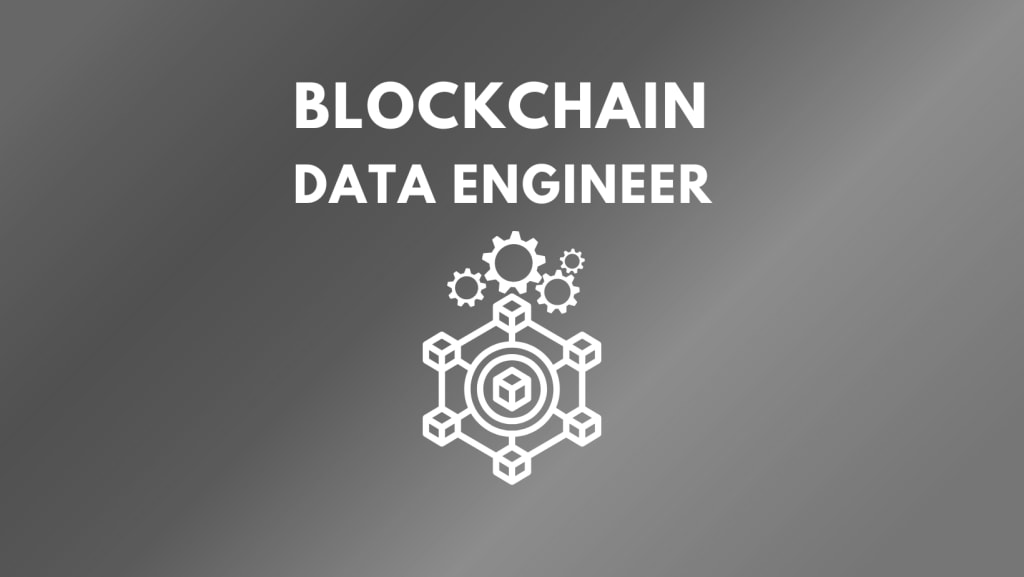Blockchain Data Engineer | Introduction, Responsibilities, and Future
A blockchain data engineer plays a crucial role in designing, building, and maintaining systems that use blockchain technology to store and process data.

A decentralized digital archive, popularly known as the blockchain, allows multiple parties to record transactions securely and transparently without needing a central authority or third-party intermediary.
Impact Of Blockchain On Data Engineering
The capability to deliver a protected and unchangeable record is one of the most considerable impacts of blockchain on data engineering. This is achieved through cryptographic techniques, which ensure that once data has been recorded on the blockchain, it cannot be altered or deleted. This makes it ideal for recording financial transactions, supply chain data, and other types of information that require a high degree of security and trust.
Another impact of blockchain on data engineering is the technology's decentralized nature. In traditional systems, data is often stored in a central location, making it vulnerable to attacks or breaches. With blockchain, information is distributed across a network of computers, making it more resistant to tampering and more resilient in the event of an outage.
This article focuses on understanding the blockchain data engineer's role and future scope in business.
Understanding The Role of A Blockchain Data Engineer
A blockchain data engineer plays a crucial role in designing, building, and maintaining systems that use blockchain technology to store and process data. Some specific responsibilities of a blockchain data engineer may include the following:
Designing and implementing data storage solutions using blockchain technology: This involves choosing the right blockchain platform and creating the database schema to ensure that data is stored efficiently and can be easily accessed and queried.
Building and maintaining data pipelines: Responsibilities of a blockchain data engineer include maintaining data pipelines that extract, transform, and load data from diverse sources into the blockchain database.
Implementing data security measures: Blockchain technology is known for its security features, but it is still essential to ensure that data is protected against unauthorized access or tampering. A blockchain data engineer may be responsible for implementing security measures such as encryption, access controls, and backup and recovery procedures.
Developing and maintaining intelligent contracts: A blockchain data engineer is responsible for designing and implementing smart contracts, with the terms of the agreement between both parties being directly written into strings of code that facilitate business-process automation.
Analyzing data and generating insights: A blockchain data engineer may also be responsible for analyzing data stored on the blockchain and developing insights that can be used to inform business decisions. This may involve using tools like SQL, Python, or R to run queries and build data visualizations.
A blockchain data engineer plays a vital role in designing, building, and maintaining systems that use blockchain technology to store and process data securely and transparently. How can they get utilized in the future?
Future scope of a blockchain data engineer in the business
As blockchain technology becomes more widely adopted in the business world, the demand for skilled blockchain data engineers will likely increase. Enterprises hire data engineer to design, build and maintain the infrastructure that supports blockchain systems.
In the future, the scope of a blockchain data engineer in the business world is likely to include tasks such as:
Healthcare: Blockchain technology could store and secure patient medical records, making accessing and sharing data more accessible while maintaining user privacy.
Government and public sector: Blockchain technology could improve the transparency and security of government processes, such as voting systems and general record keeping.
Real estate: Blockchain technology could be used to securely and transparently track property ownership and transfer, streamlining the buying and selling of real estate.
Designing and implementing blockchain systems: Blockchain data engineers will be responsible for designing and building the infrastructure that supports blockchain systems, including the hardware, software, and networking components.
Analyzing and optimizing blockchain data: Blockchain data engineers will need to analyze and optimize the data stored on the blockchain to ensure that it is accurate, secure, and efficiently processed.
Integrating blockchain systems with existing business systems: Blockchain data engineers may be responsible for incorporating blockchain systems with other business systems, such as enterprise resource planning (ERP) systems, for enabling seamless data flow between systems.
Overall, the future scope of a blockchain data engineer in the business world is likely to be comprehensive and varied, with opportunities for skilled professionals to work in various industries and sectors. As technology evolves and matures, we expect to see even more innovative and exciting opportunities for blockchain data engineers in the business world.
About the Creator
Daryl Young
Howdy! I'm Daryl Young, a tech consultant from the great state of Texas. I've been knee-deep in the tech world for over 20 years, helping folks understand everything from software and web development to AI, data science, and RPA.






Comments
Daryl Young is not accepting comments at the moment
Want to show your support? Send them a one-off tip.